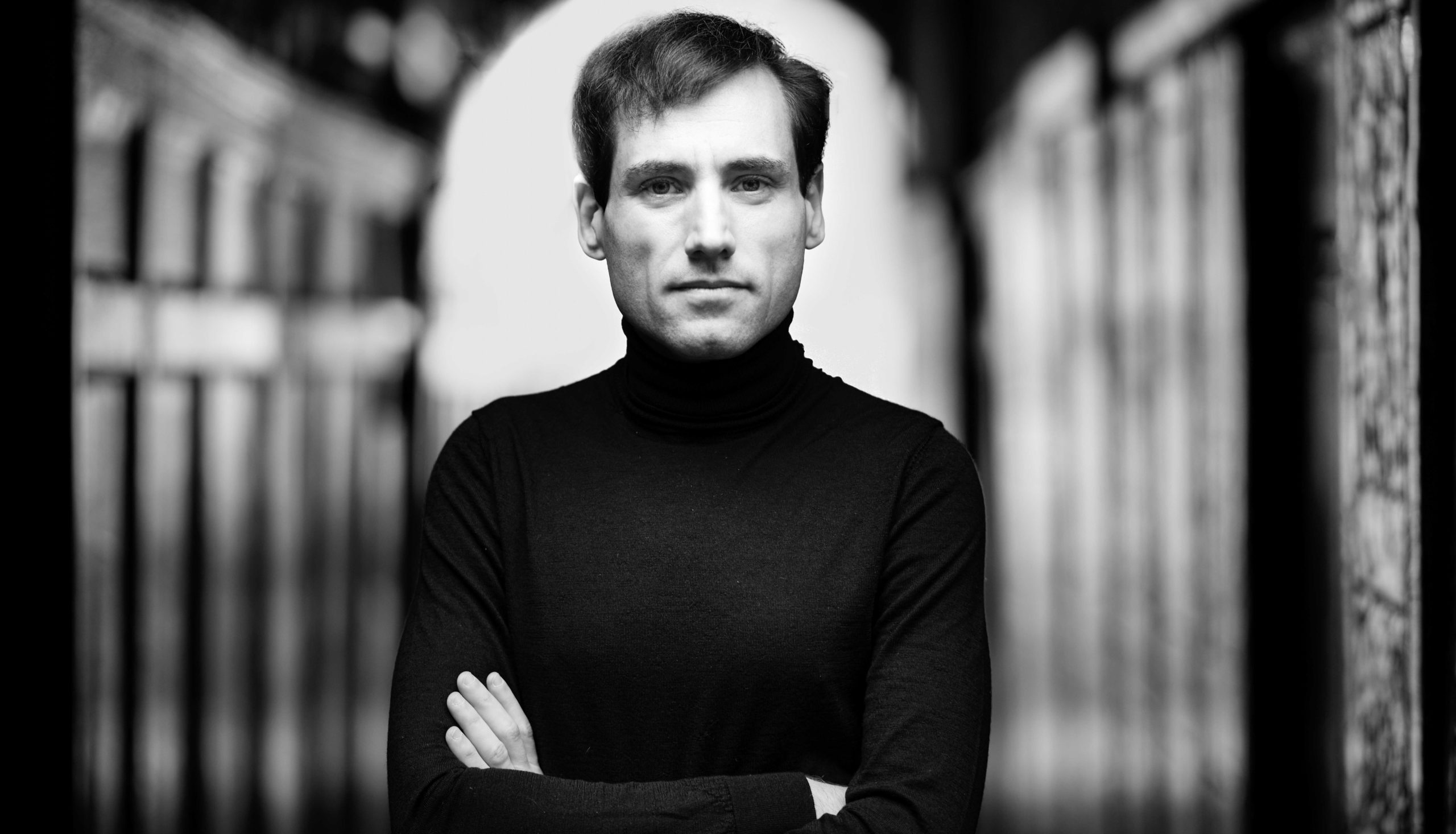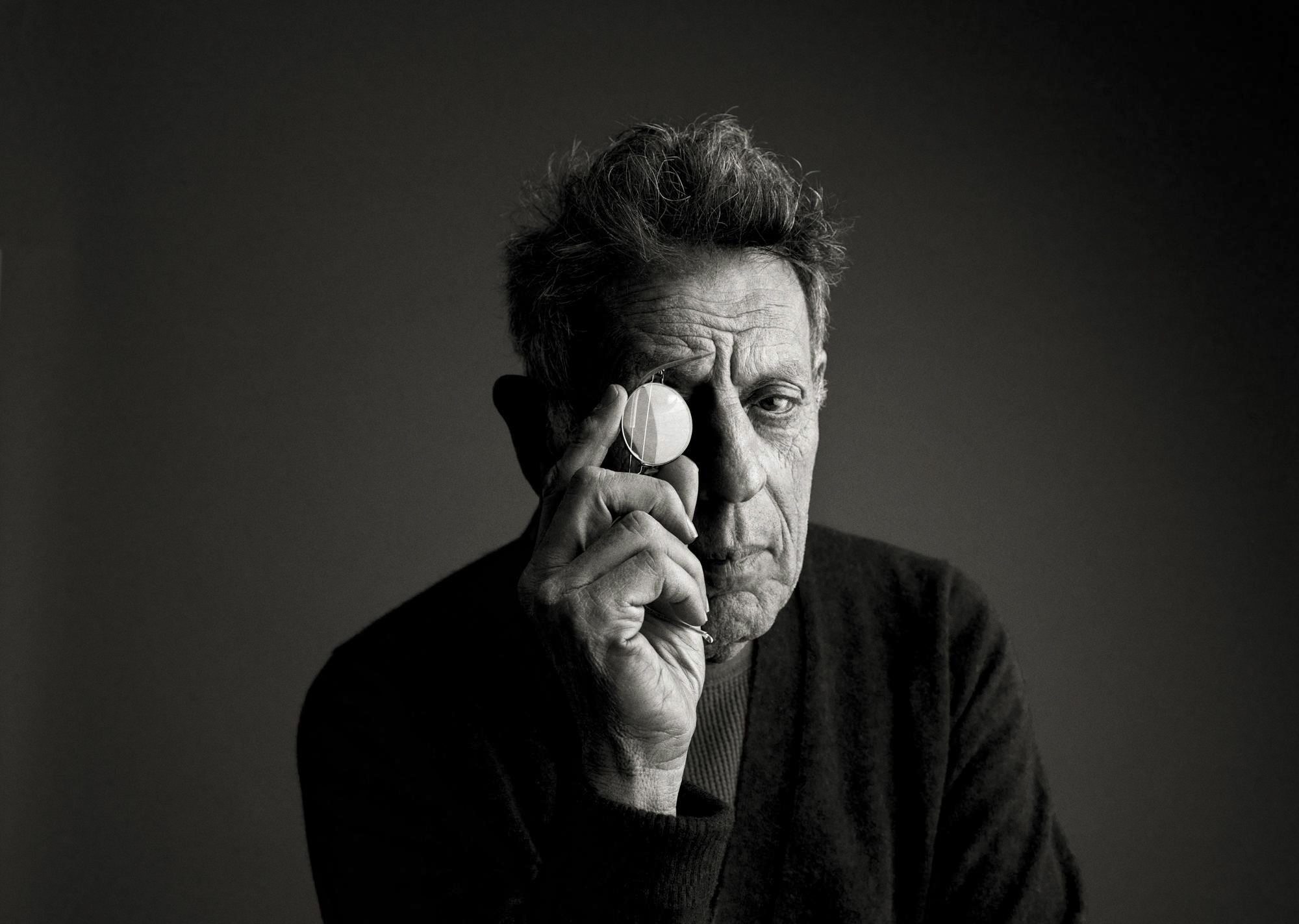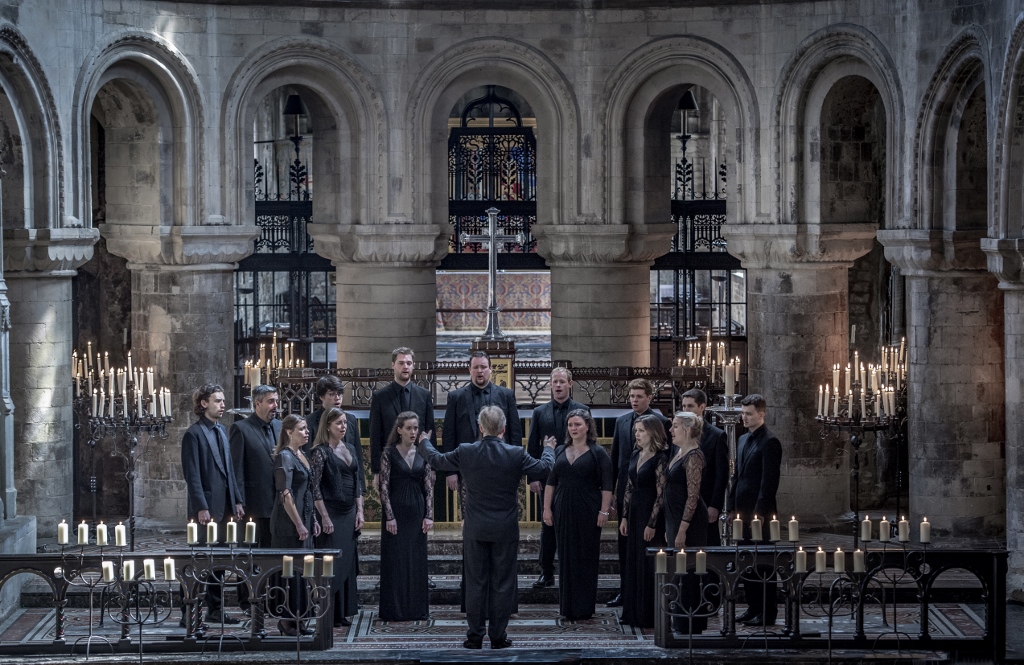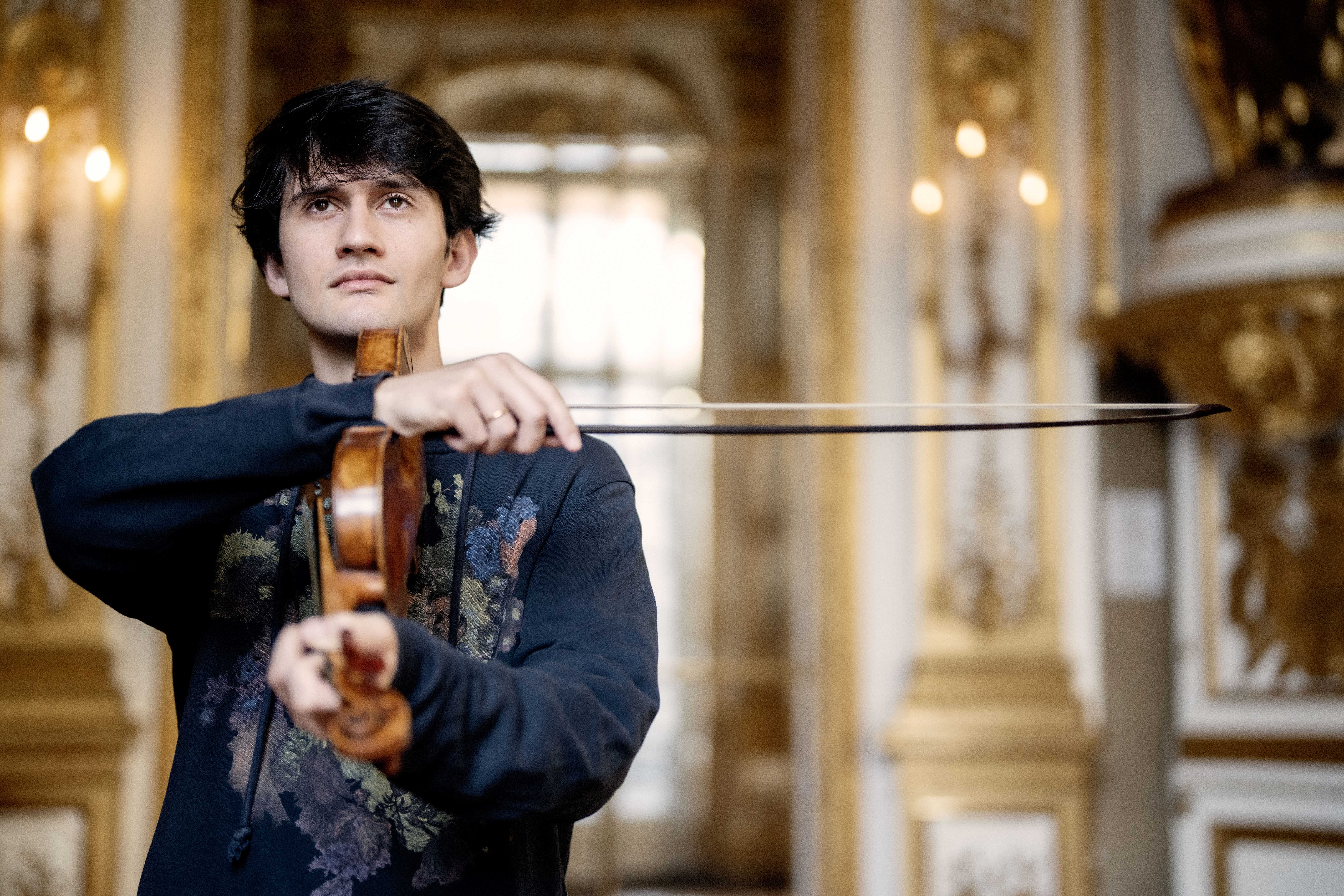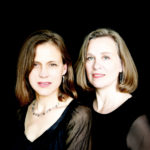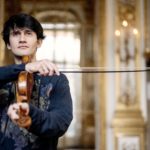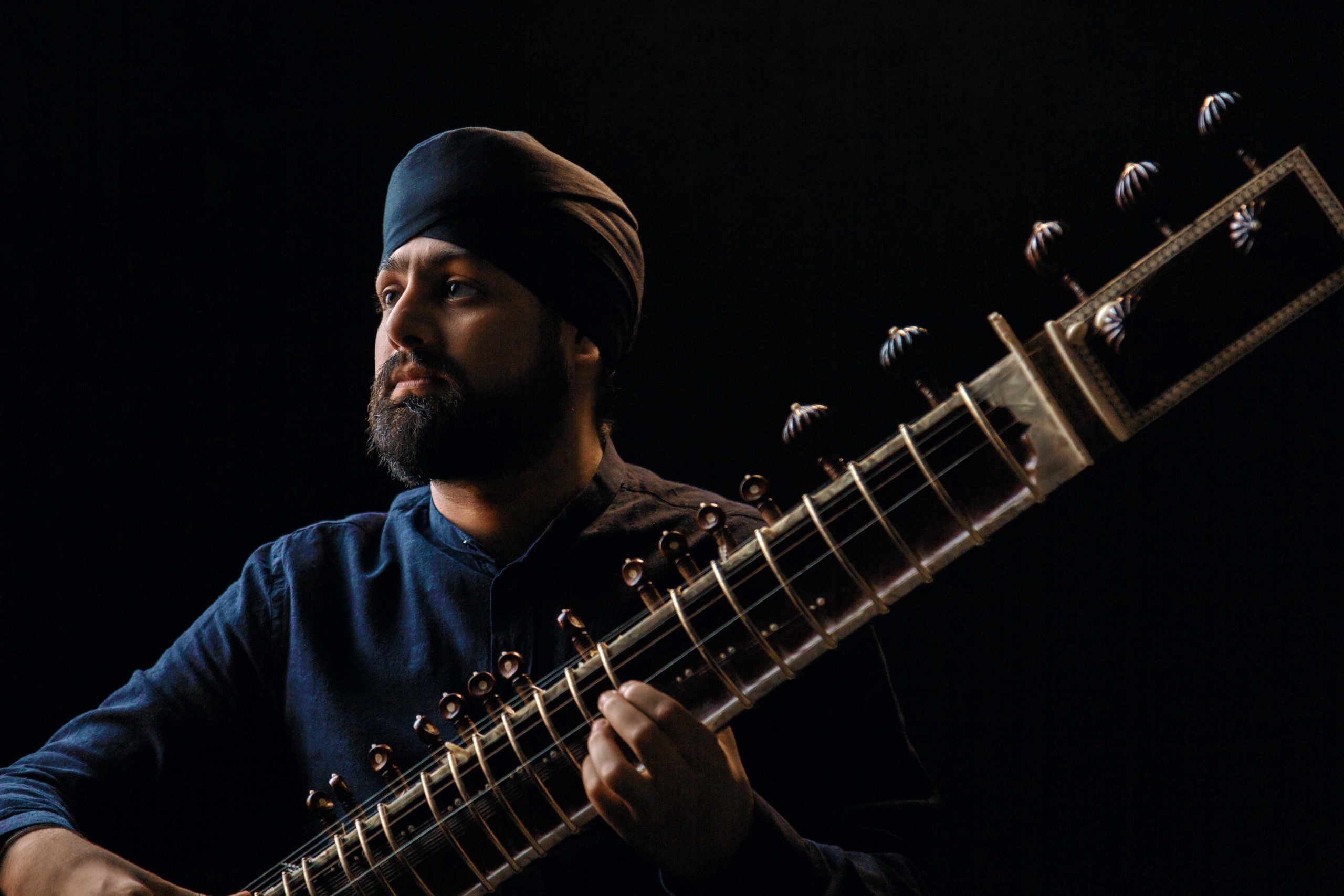
Meet Jasdeep Singh Degun
“One of the most imaginative musicians in the land” (The Independent), Jasdeep Singh Degun is known for award-winning collaborations across western and Indian music traditions. He’s also a virtuoso sitar player, trained by some of north India’s finest musicians. He plays in Cambridge on 7 March alongside tabla player Harkiret Bahra.
About 90 percent of a standard Indian classical concert will be improvised on the spot by the soloist.
What are your first musical memories?
My first memories of music was growing up at home in Leeds. I don’t come from a musical family, so Indian classical music wasn’t really on the radar. Both my parents used to listen to the radio, so pop music or bhangra music was what I was exposed to as a child. Indian classical music came into my life much later on.
When did you start playing sitar?
I was first exposed to Indian classical music in my primary school, which offered lessons in harmonium, singing, and tabla. I signed up to the harmonium and vocal class and never looked back really. From there I was encouraged to get involved in local community classes and joined the Saturday music school at Leeds College of Music, and a Sunday scheme called Yorkshire Young Musicians (YYM).
I came to the sitar quite late having picked it as a second study at YYM when I was around 15 years old or so – which is relatively quite late. I began studying under the visionary musician Ustad Dharambir Singh MBE.
How did you meet Harkiret Bahra?
I joined the national youth orchestra SAMYO when I was younger, and even though Harkiret had left the orchestra by then, I’d seen him around at concerts – you know music circles are quite small.
We first played together for a concert in King’s Place whilst I was studying at university, and we kind of hit it off. I play with Harkiret a lot: he’s my regular tabla player and we’ve been playing on and off for the last 10 years or so. He’s a brilliant and dynamic tabla player and a wonderfully kind person to be around.
We like to have the freedom to decide what we want to play usually moments before the concert starts!
How much of what you’ll play on 7 of March is improvised and how much is set out according to standard practice?
Indian classical music is a solo tradition and very much based on improvisation – albeit to very fixed and structured rules. However, about 90 percent of a standard Indian classical concert will be improvised on the spot by the soloist.
In a standard performance we have two movements. The first movement is just sitar by itself, which follows a three-part form: Alap, Jorh, and Jhalla. And that’s basically a very, very slow unfolding of the raag (melodic framework) which gradually gets faster and finishes with a dramatic and virtuosic end.
The second movement is where the tabla joins in. And again, that starts off slow and then builds to a huge crescendo, but this time the sitar is accompanied by the tabla following a set time-cycle or taal.
Once we’ve played our main raag, we might play a few lighter pieces in a different raag – but that really depends on the mood of the musicians at the time. So in this sense, each concert is different and ‘fixing a programme’ is often seen as restrictive to the music and musicians performing the music – we like to have the freedom to decide what we want to play usually moments before the concert starts!
Tell us about the physical set up of the performance space.
There’ll be a stage with the soloist (in this case the sitarist) in the middle and the accompanist (in this case, the tabla player) off to one side. We sit on the floor cross-legged without any shoes and we’re raised off the ground – that’s to maintain respect for the instruments and our music tradition, which some musicians consider sacred.
Can you recommend any pre-concert listening for anyone who wants to become familiar with the sound world you’ll be creating?
There are two forms of classical music in from India. One is a North Indian classical music, which is called Hindustani classical, and the other is South Indian classical music, calledCarnatic music. Harkiret and I are both trained in Hindustani music so you’ll be hearing a typical North Indian classical recital.
Of course there are many different instruments to choose from and many artists. But for sitar players, I would recommend listening to Ustad Vilayat Khan, Ustad Shahid Parvez, and Ustad Nishat Khan. If you would like to listen to other instruments then you could check out Kaushiki Chakrabarty (vocal), Rakesh Chaurasia (bansuri), Pandit Shiv Kumar Sharma (santoor), or Ustad Zakir Hussain (tabla)

